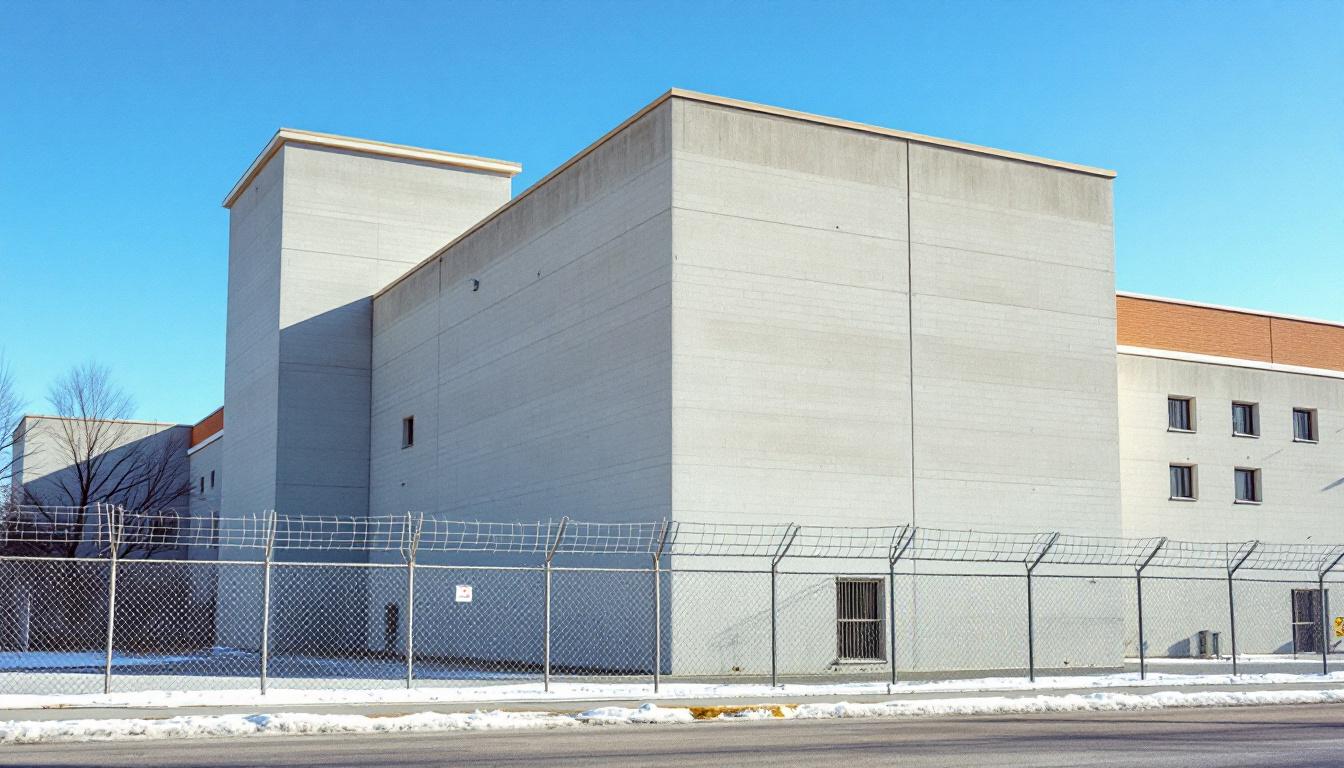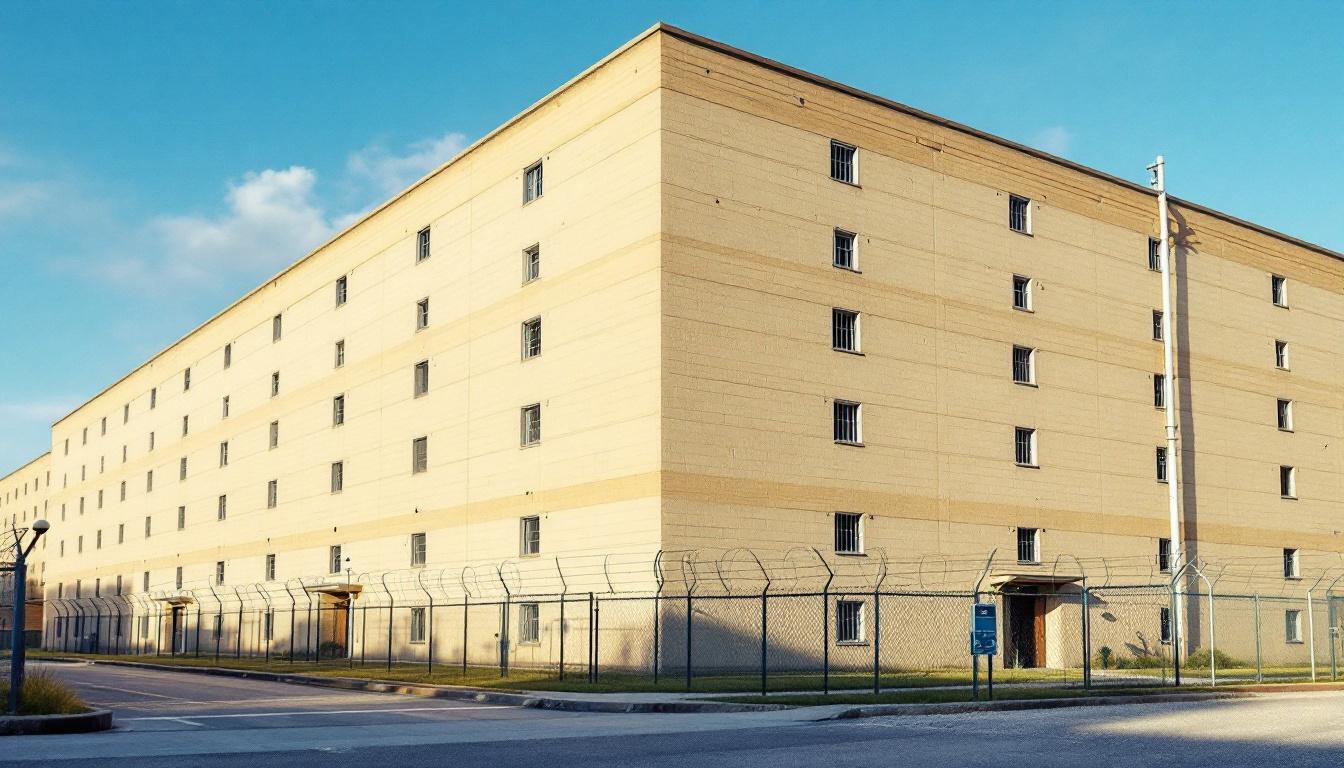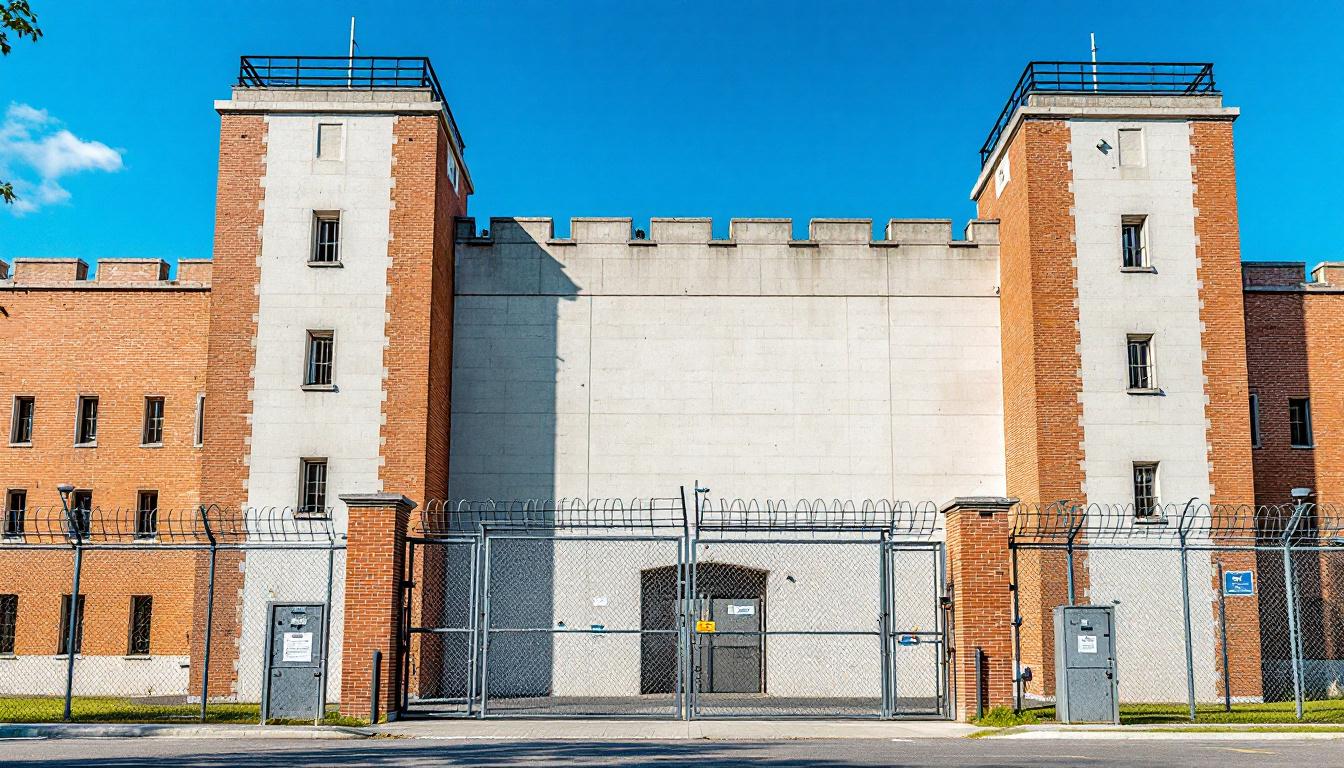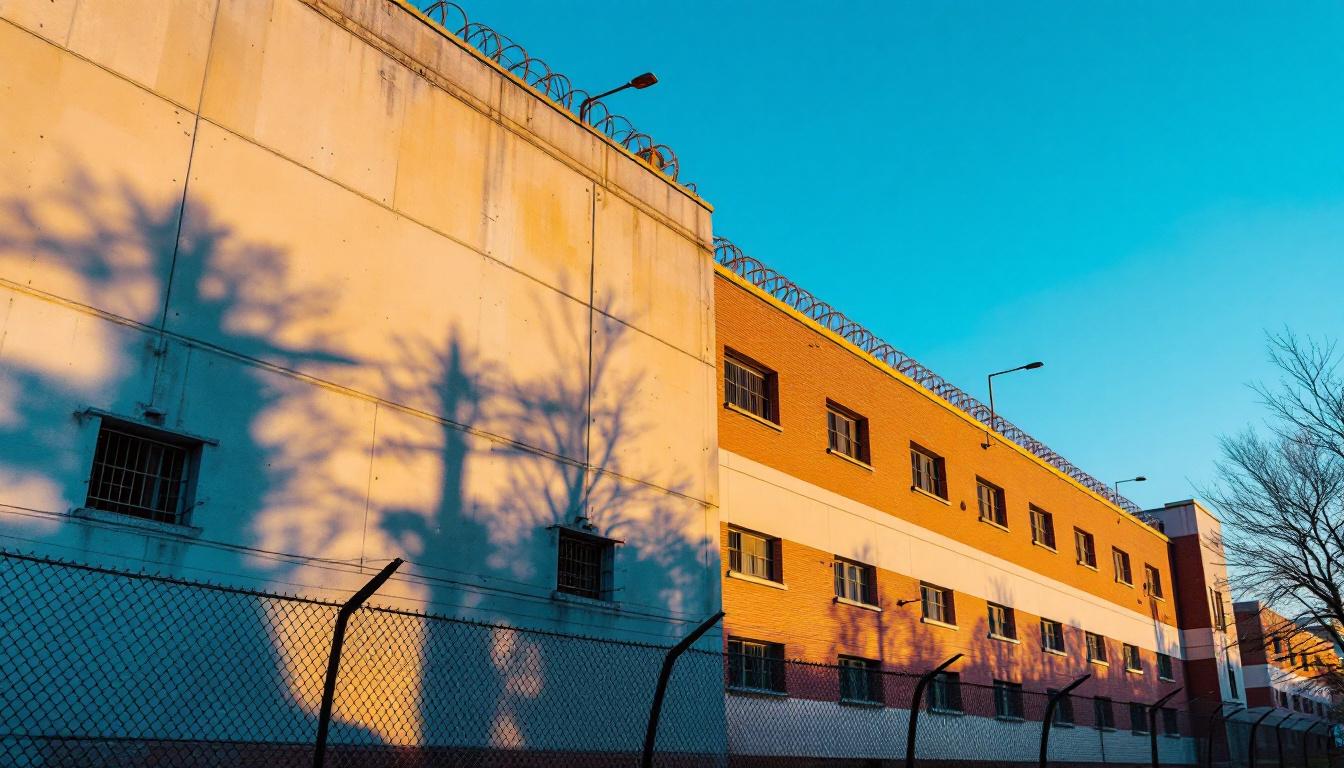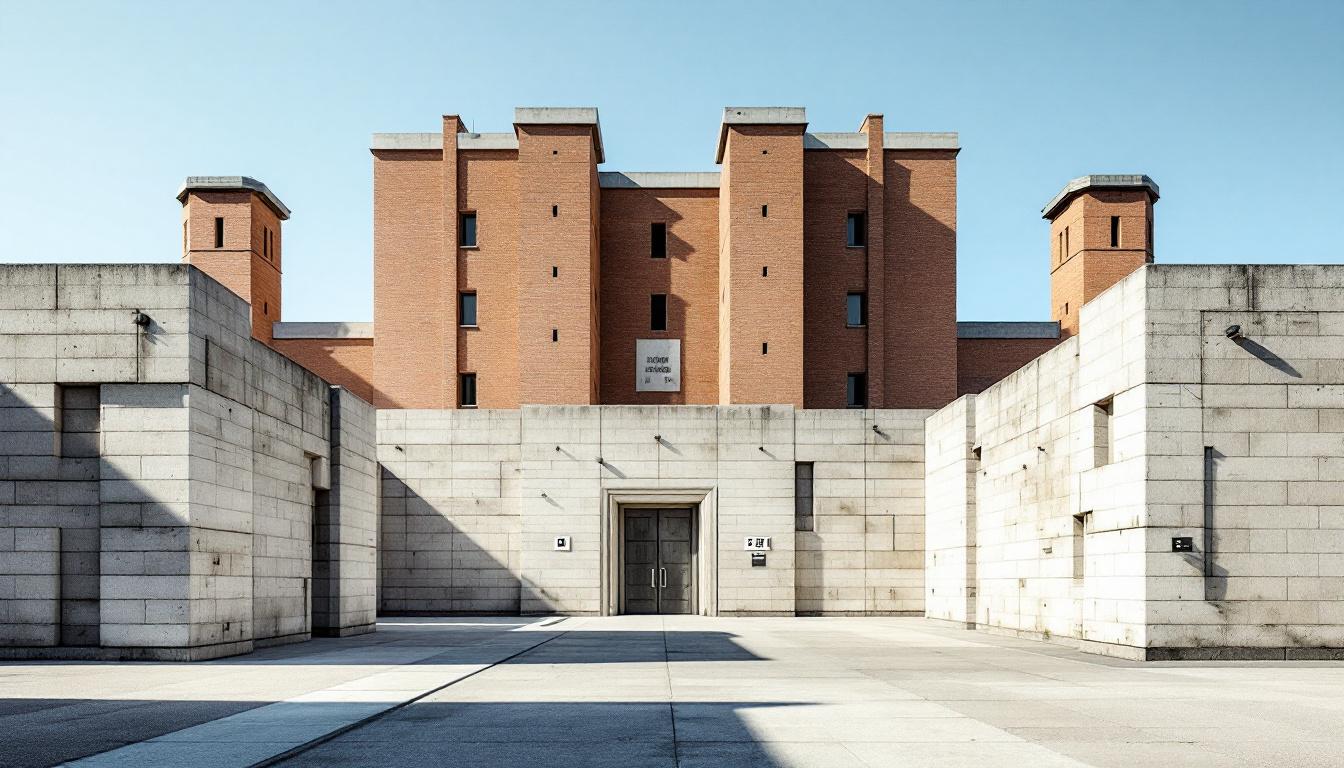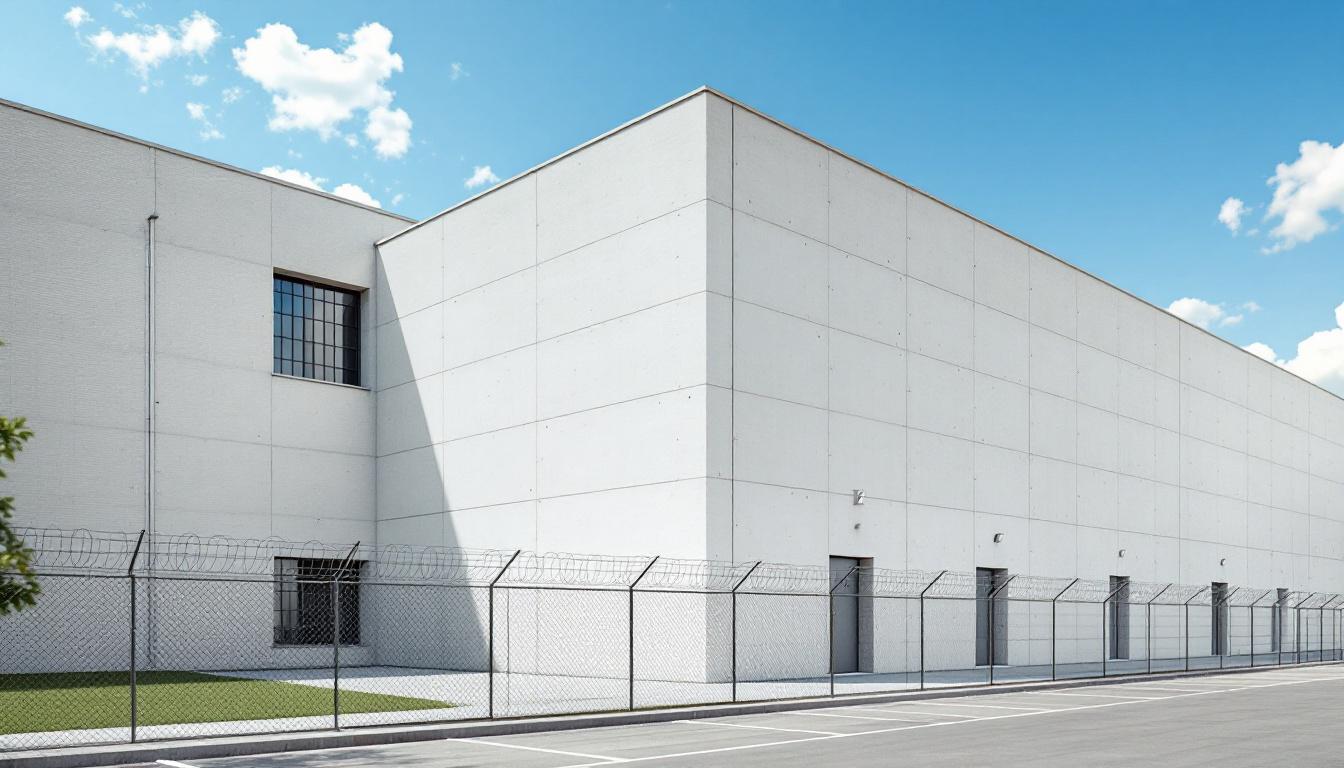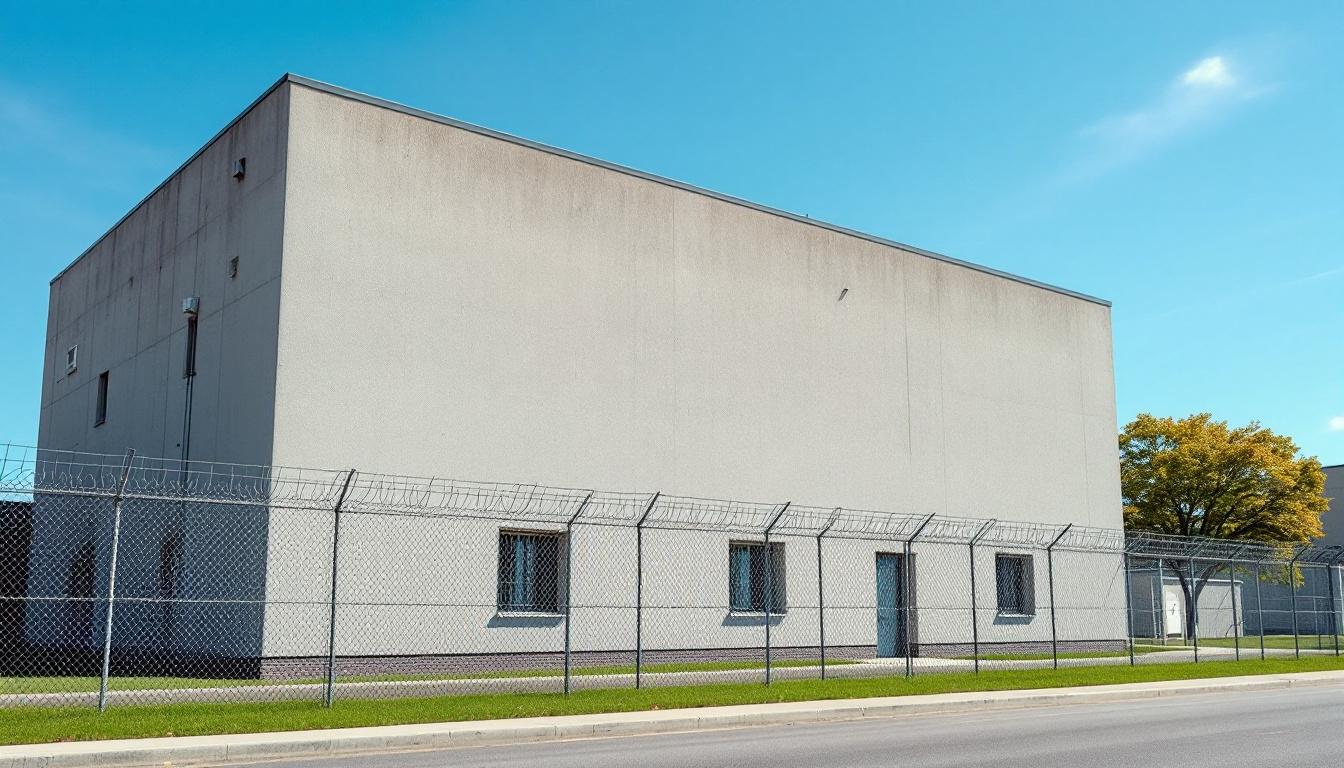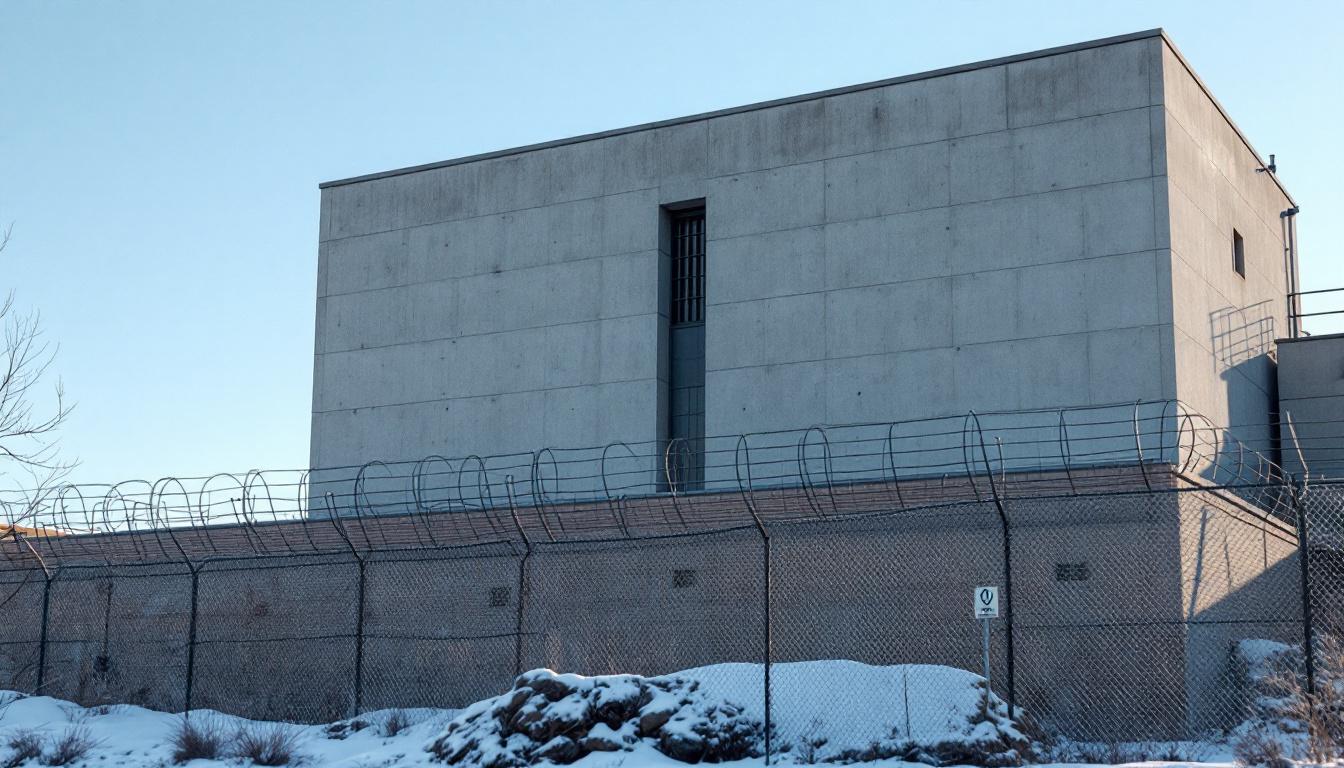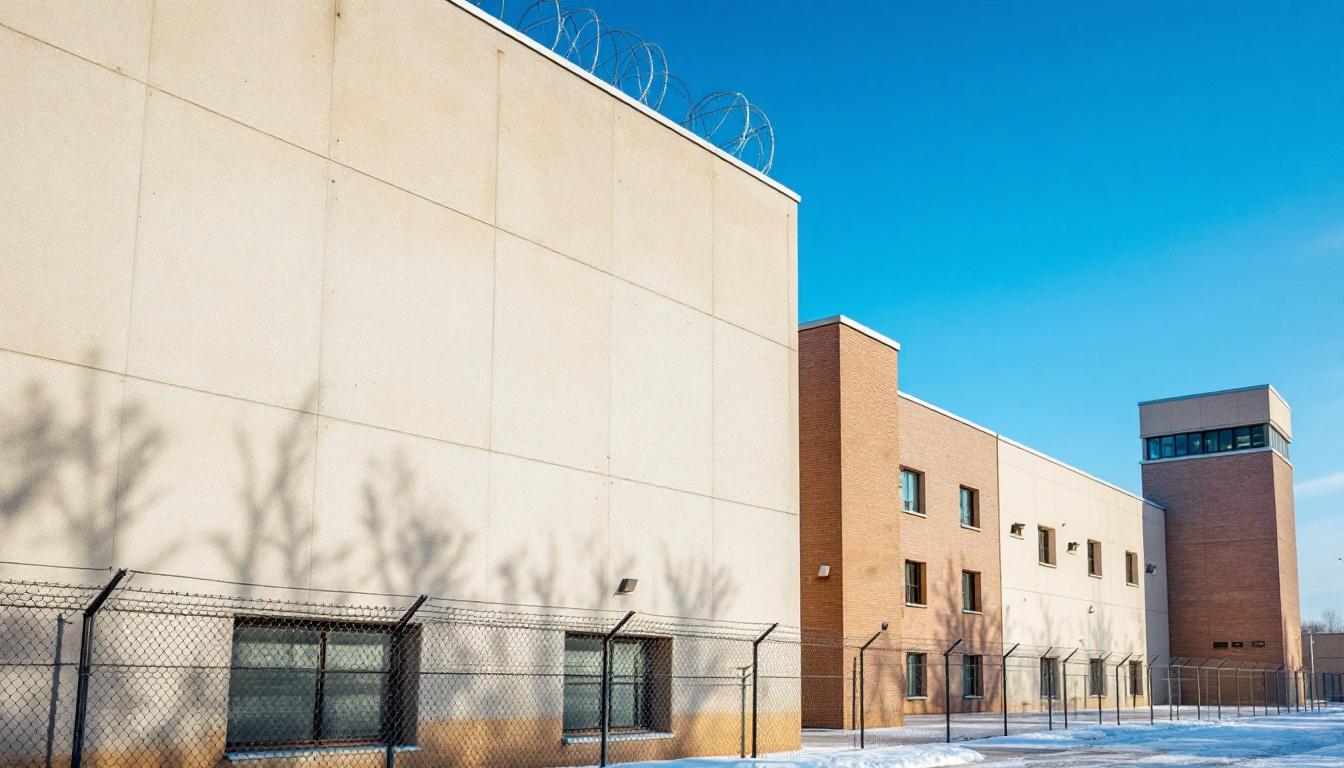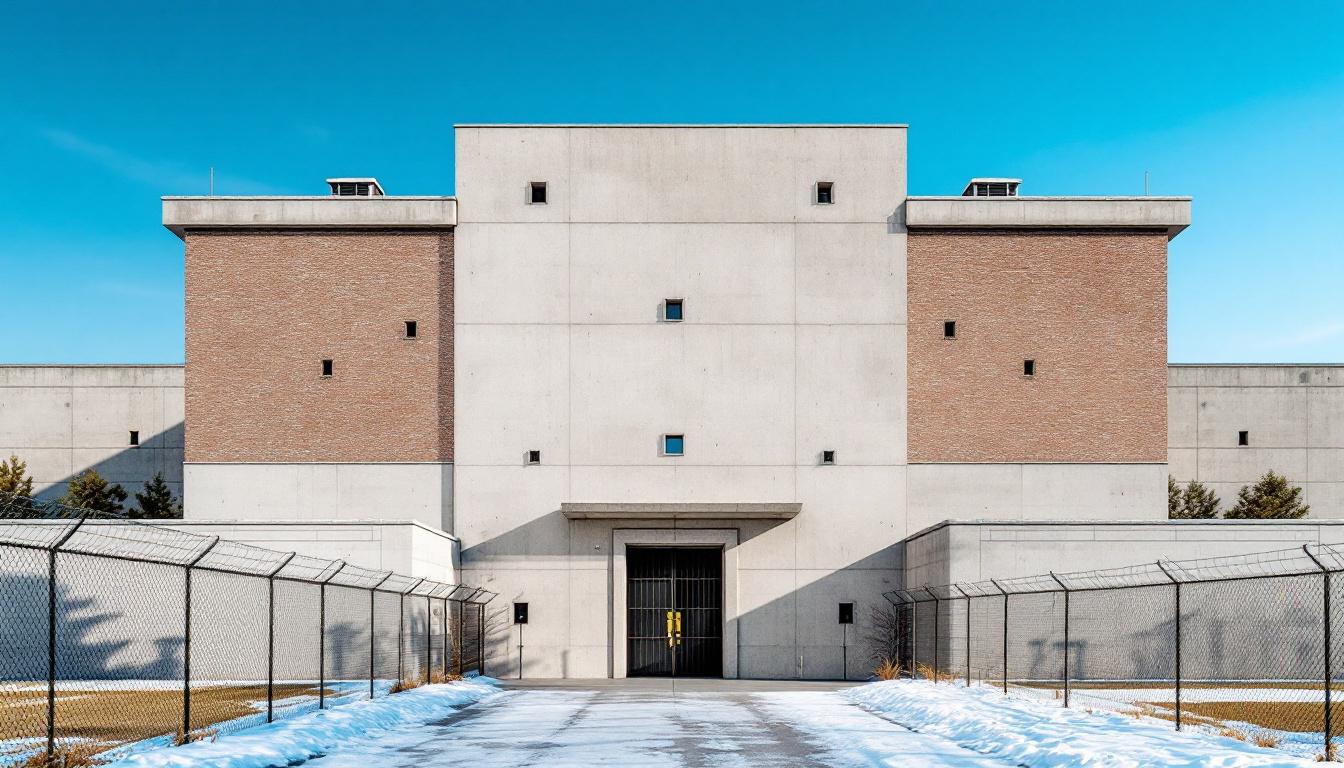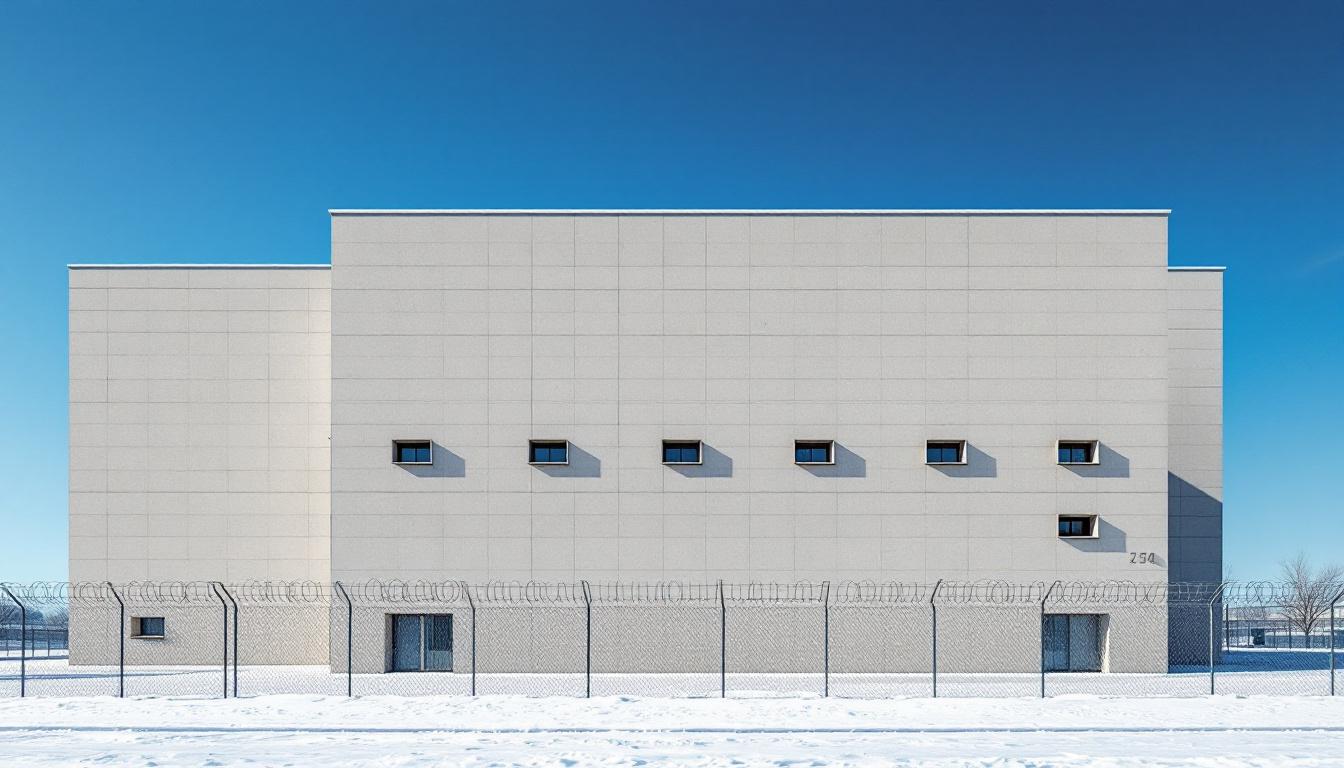
Quick Navigation
How to contact an inmate at Oconee County Detention Center
This comprehensive guide will walk you through how to connect with an inmate at Oconee County Detention Center. Follow the steps below to find an inmate and send letters and photos:
- Search for the inmate using our search tool below
- Create your account or log in to Penmate
- Write your message (up to 6,000 characters)
- Send instantly - inmates receive printed copies daily
Find an Inmate
Search for an inmate to start communicating today
Tip: You can search by first name, last name, or inmate ID number
To contact a person at Oconee County Detention Center start by searching for the person on the official facility website. Perform a search by following these steps:
- Step 1: Enter their first name and last name into the search form and click "Search"
- Step 2: Locate their inmate record
- Step 3: Write down their Inmate ID and any housing information provided
Important! Be sure to enter the person's full name. Nicknames should not be used.
How to Send Messages to Inmates

You can use your phone or computer to send emails, letters, and photos to an inmate. Messages are sent electronically to inmate tablets or kiosks at the facility. If you would like to send a message, start by searching for an inmate at Oconee County Detention Center.
Sending Photos and Postcards

A great way to send love and support to a loved one at Oconee County Detention Center is to send photos and postcards. It only takes a few minutes to send photos from your phone and it makes a huge difference. You can also mail postcards with words of support and inspiration, or design your own postcard for special moments like birthdays and holidays.
Important! Be sure not to send any explicit photos or they may not be approved by the facility. You can also use a photo printing app like Penmate to make sure your photos are printed at the correct size (4x6 or 3x5) and are mailed according to the rules and regulations of Oconee County Detention Center.
Frequently asked questions about Oconee County Detention Center
-
How long does it take to deliver a message?
If you're sending an email message your letter is usually delivered within 24-48 hours. For messages sent via mail you should expect delivery within 3-7 days. All messages will need be approved by Oconee County Detention Center.
-
How much does it cost to send a message to Oconee County Detention Center?
You can send a message free using your phone or mail a message via USPS for the price of a $0.60 stamp and envelope. You can also purchase credits or e-stamps from services starting at $1.99.
-
What services can I use to contact an inmate at Oconee County Detention Center?
Penmate
You can use Penmate to send letters and photos to an inmate from your phone. It's an easy way to stay in touch during your loved one's incarceration. Use the inmate locator to find an inmate's location and contact information, then you can send messages within a few minutes.
Securus messaging
Securus may be another option for communicating with an inmate at Oconee County Detention Center. You can create a friends and family account and purchase credits to send messages. All messages will be reviewed and must be approved by the facility.
JPay
Some county jails and state prisons may support sending messages with JPay. You must register an account with the system, find your loved one, and purchase stamps to send messages. For some locations you can also attach photos.
Smart Jail Mail
You may also check if Smart Jail Mail is available at Oconee County Detention Center. Smart Jail Mail is operated by Smart Communications and has contracted with some state and county jails. After purchasing credits, your messages and photos are sent to the facility, printed out, and then handed out to your loved one.
-
What is the mailing address of Oconee County Detention Center?
Mailing address:
Oconee County Detention Center
300 S Church St
Walhalla, SC 29691
Phone: (864) 638-4228 -
What are the visiting hours at Oconee County Detention Center?
Visiting hours at Oconee County Detention Center vary by housing unit and security level. Generally, visits are scheduled on weekends and holidays, with some facilities offering weekday visits. Contact the facility directly at (864) 638-4228 or check their website for the current visiting schedule. Visits typically last 30-60 minutes and must be scheduled in advance.
-
What items are prohibited when sending mail to Oconee County Detention Center?
Prohibited items typically include: cash, personal checks, stamps, stickers, glitter, glue, tape, staples, paperclips, polaroid photos, musical or blank greeting cards, hardcover books, magazines with staples, and any items containing metal or electronics. Only send letters on plain white paper with blue or black ink. Photos must be printed on regular photo paper (no Polaroids). Always check with Oconee County Detention Center for their specific mail policies.
-
How do I send money to an inmate at Oconee County Detention Center?
You can send money to an inmate at Oconee County Detention Center through several methods: 1) Online using JPay, Access Corrections, or the facility's approved vendor, 2) Money orders mailed directly to the facility with the inmate's name and ID number, 3) Kiosks located in the facility lobby, or 4) Over the phone using a credit or debit card. Fees vary by method, typically ranging from $2.95 to $11.95 per transaction.
-
Can I schedule a video visit with an inmate at Oconee County Detention Center?
Many facilities now offer video visitation as an alternative to in-person visits. At Oconee County Detention Center, video visits may be available through services like Penmate, Securus Video Connect, GTL, or ICSolutions. Video visits typically cost $10-20 for 20-30 minutes and must be scheduled in advance. You'll need a computer or smartphone with a camera and reliable internet connection. Contact the facility for their specific video visitation policies and approved vendors.
-
What identification do I need to visit an inmate at Oconee County Detention Center?
All visitors must present valid government-issued photo identification such as a driver's license, state ID, passport, or military ID. Minors must be accompanied by a parent or legal guardian who can provide the minor's birth certificate. Some facilities require visitors to be on the inmate's approved visitation list, which may require a background check. Contact Oconee County Detention Center for specific ID requirements and visitor approval procedures.
-
How can I find out an inmate's release date?
To find an inmate's release date at Oconee County Detention Center, you can: 1) Use the online inmate search tool if available, 2) Call the facility's records department, 3) Contact the inmate's case manager or counselor, or 4) Have the inmate provide this information during a call or visit. For privacy reasons, some facilities only release this information to immediate family members.
Facility Overview
Contact Information
Oconee County Detention Center300 S Church St
Walhalla, SC 29691
Phone: (864) 638-4228
Official Website

About Oconee County Detention Center
Detention centers serve as crucial transitional points within the criminal justice system, and the Oconee County Detention Center, SC exemplifies this role while addressing the diverse needs of individuals awaiting trial or serving shorter sentences in the Walhalla community. This SC correctional facility typically operates with a focus on maintaining security while providing essential services that support both immediate custody requirements and longer-term reintegration goals. Located in Walhalla, the facility generally serves residents from throughout Oconee County and may accommodate individuals from surrounding areas when capacity and jurisdictional agreements allow.
The population services at this detention center often encompass a range of programming designed to address various needs during what can be a challenging period for both detainees and their families. Educational opportunities, substance abuse counseling, and mental health support may be available to help individuals address underlying issues that contributed to their legal circumstances. The facility typically works to maintain connections between detainees and their support networks through visitation programs and communication services, recognizing that family stability often plays a vital role in successful community reintegration.
As part of South Carolina's broader correctional framework, the Oconee County Detention Center generally aligns its operations with state-level goals emphasizing public safety, accountability, and rehabilitation. The facility may collaborate with local organizations, courts, and social services to ensure continuity of care and support as individuals transition back into the Walhalla community. Through these coordinated efforts, the detention center typically serves not just as a secure holding facility, but as a component in a larger system working toward reducing recidivism and promoting positive outcomes for all involved.
Programs & Services
Support for individuals in custody begins with comprehensive programs designed to address multiple aspects of personal development and preparation for community reintegration. The Oconee County Detention Center typically emphasizes a holistic approach that recognizes the diverse needs of the population. These programs often focus on building essential life skills while providing therapeutic support to help participants work through personal challenges and develop healthier coping strategies.
Educational services may supply basic literacy instruction, GED preparation, and continuing education opportunities for those seeking to advance their academic credentials. Vocational programs often include training in practical skills that can lead to employment opportunities upon release. These educational initiatives typically work alongside employment readiness programs that help participants develop job search skills, interview techniques, and workplace behavior expectations. The combination of academic and vocational training may provide a strong foundation for successful community reintegration.
In addition to these educational components, therapeutic programs typically include individual counseling sessions where participants can work with mental health professionals to address personal issues and develop coping mechanisms. Faith-based initiatives often provide spiritual support and community connection for those who choose to participate. Support services may also include housing assistance programs that help individuals plan for stable living arrangements after release, along with time management programs that teach essential organizational and planning skills. These various programs work together to create a supportive environment focused on personal growth and successful transition back to the community.
Daily Life & Visitation

Systematic organization shapes every aspect of the experience for the population at Oconee County Detention Center, with structured routines that currently govern movement, meals, and activities throughout each day. The facility continues to operate on predetermined schedules that typically include morning wake-up calls, scheduled meal times, and designated periods for various activities. Count procedures generally occur multiple times daily to ensure accountability, while the population moves between different areas of the facility according to established protocols.
Housing arrangements typically place residents in dormitory-style units or individual cells, depending on classification levels and available space. Living accommodations generally include basic furnishings such as beds, storage areas, and shared bathroom facilities. In addition to this structured housing system, the facility supplies three meals daily in designated dining areas, with the population usually eating according to housing unit schedules. Personal property allowances may include limited clothing items and approved personal hygiene products, while commissary services often provide additional items for purchase.
Despite this controlled environment, recreational opportunities typically supply some variety to daily routines through scheduled yard time, television viewing periods, and basic exercise equipment access when available. Work assignments generally include facility maintenance tasks, kitchen duties, and cleaning responsibilities that help maintain operations while providing structure for participants. Programming schedules may offer educational classes, substance abuse counseling, or religious services depending on available resources and staffing. Visitation policies usually allow family contact during designated hours and days, while telephone access continues to provide communication opportunities with approved contacts according to facility guidelines.
Ready to Connect?
Start communicating with your loved one today
Search for an Inmate
